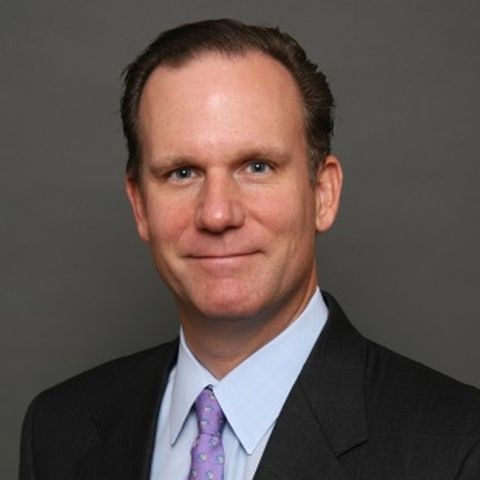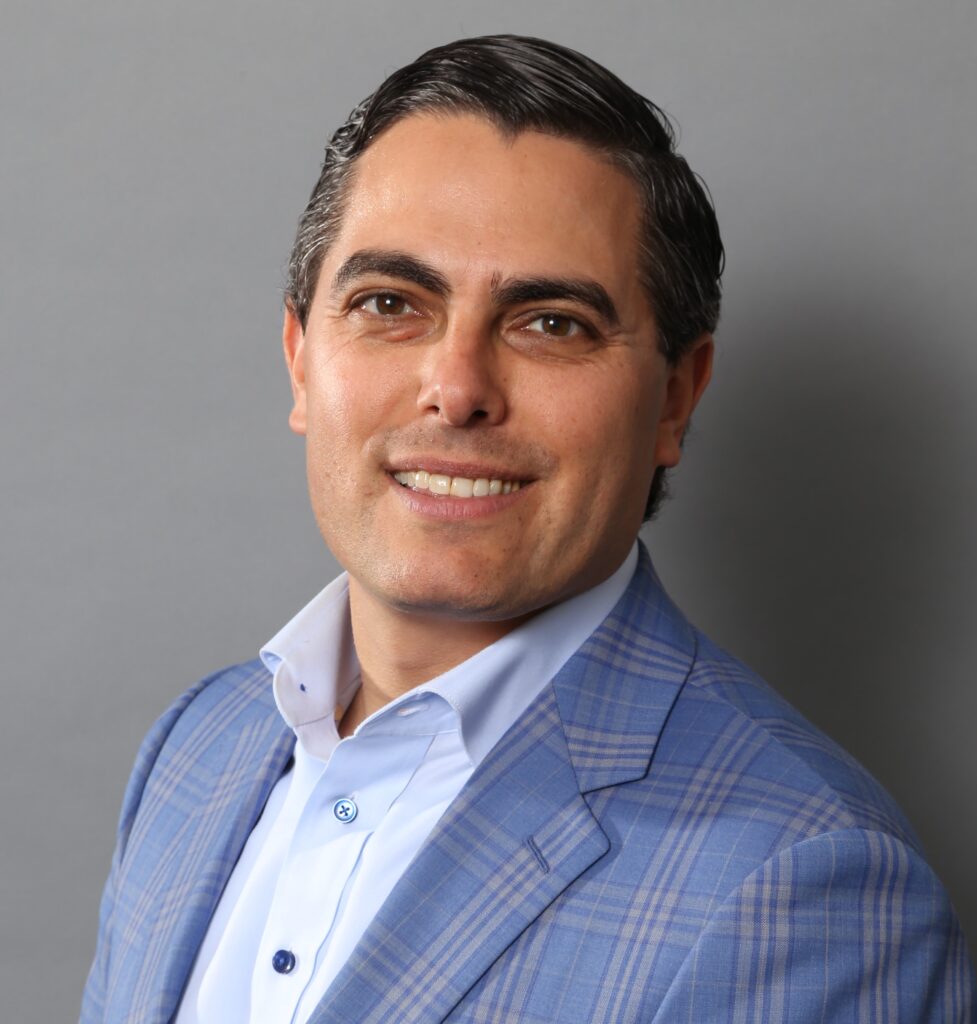GP Profile: New Mountain extends dealmaking surge, sticks to non-cyclical assets
- Fund VII will continue strategy of backing assets that can survive economic distress
- Recent investee Grant Thornton is already being primed for add-on acquisitions
- Two continuation vehicles raised to date, but “true third-party exits” are preferred
Bolt-on acquisitions are a key element of New Mountain Capital’s playbook, but the recently announced merger of three existing portfolio companies to create a medical payments group at a reported USD 3bn valuation is an especially bold integration initiative.
The combination of The Rawlings Group, Varis, and Apixio Payment Integrity continues a rich vein of deal-making by the New York-based sponsor and may add to the consensus view that North American private equity is beginning to emerge from its slump. Financial sponsor-led buyouts in North America totaled USD 242bn for the first nine months of 2024, a 32% year-over-year increase, according to Mergermarket data.
New Mountain’s contributions to first-half deal flow include accounting and advisory firm Grant Thornton and engineering group Consor Holdings. Both investments came from its latest buyout fund, New Mountain Partners VII, which closed in June on USD 15.4bn. This is the largest in the firm’s 24-year history and a significant step up from the USD 9.6bn raised for Fund VI.

David Coquillette, New Mountain Capital’s managing director of business development.
These transactions followed a bid by New Mountain in February for the remaining shares in R1 RCM, in which the sponsor held a 32.4% stake. Ultimately, TowerBrook -R1 RCM’s other major shareholder- struck a deal with Clayton, Dubilier & Rice in July to take the healthcare technology company private in a USD 8.9bn deal.
Meanwhile earlier this week, data center service provider Salute announced a majority investment from New Mountain.
Despite the implied increase in average check size, the growth-oriented private equity investor’s strategy has changed little over the past two decades, according to Adam Weinstein, the firm’s COO and CFO, and David Coquillette, its managing director of business development.
“If you go back 24 years when the firm started, it was really the same ideas that we’re executing today, albeit with more capital and more clients,” Coquillette, whose duties include fundraising, told Mergermarket in an interview.
Buy and build
The alternative investment firm was launched in 1999 by Steven Klinsky, who helped pioneer Goldman Sachs’ leveraged buyout group in the 1980s. Its middle market “defensive growth” strategy targets non-cyclical industries – from life sciences and advanced materials to software and data analytics – that have been proven to weather times of economic distress.
“We study industries proactively – sometimes years ahead of making an investment … to identify areas or areas of the economy that have the wind at their back,” said Weinstein.

Adam Weinstein, New Mountain Capital COO and CFO.
The firm typically invests between USD 100m and USD 500m per transaction in companies with enterprise values ranging from USD 100m to USD 1bn, according to its website.
“In the early years of an investment, we’re taking the EBITDA margins of the business down because we’re investing in new geographies, new products, new initiatives, and we’re bulking up a management team,” Weinstein explained.
At the same time, it avoids saddling companies with excessive debt. “We look at leverage as a way to sweeten the returns a little bit, but it’s not the primary driver of what we’re doing,” Coquillette added.
The role bolt-on acquisitions play in business-building was demonstrated to full effect in Atlanta-based auto repair chain Classic Collision. When New Mountain bought the business in 2020, there were just 34 shops across Georgia, Florida, South Carolina and Alabama. By the time it exited to TPG [NASDAQ:TPG] less than five years later, there were more than 200 locations.
Central to these efforts was the recruitment of Toan Nguyen, formerly an executive at ABRA Auto Body & Glass, who, as CEO, spearheaded an aggressive M&A push in the highly fragmented collision repair market. Classic Collision completed an average of 25 acquisitions per year.
“On Friday night an auto body shop would close down and by Monday morning it would be branded Classic Collision, it would have our software system, it would have everything,” said Weinstein.
It is unclear whether Grant Thornton will take a similarly aggressive approach. However, New Mountain has already identified several opportunities for new technology investments to further expand the advisory group’s client base, Nikhil Devulapalli, a managing director at the private equity firm, stated following the deal close.
The investment is intended to help fast-track Grant Thornton’s consulting and tax businesses, which have embraced areas like digital transformation and automation to help reduce costs and streamline client services.
Fast fundraise
Classic Collision was in New Mountain’s fifth fund, which closed on USD 6.15bn in 2017. As of December 2023, the fund had generated a 2.32x multiple and a 27.84% IRR, while distributions to paid-in (DPI) was 1.16x, according to Nebraska Investment Council. Fund VI was marked at a 2.4x multiple and a 71.52% IRR, with negligible distributions.
These performance data offer some context to the fundraising process for Fund VII, which comfortably exceeded its initial target of USD 12bn. Asked about the key to securing commitments in an otherwise difficult fundraising environment, Weinstein highlighted the firm’s unchanged strategy. “I do think people go back to really look at who has been consistent,” he said
Maintaining strong relationships with LPs – including communication with clients and prospects outside of the fundraising period – has also been essential. “It isn’t like you just turn the fundraising machine on and then we have this brilliant strategy. It’s just the day-to-day heavy lifting of being heavily engaged with our clients,” Coquillette added.
Moreover, he emphasized the importance of being “a little closer to investors at a time where there’s a little more market uncertainty,” referencing New Mountain’s Tokyo office opening in January. The portion of capital raised out of Asia was higher than in earlier funds. Contributions from Canada, Australia, Europe, and the Middle East grew as well.
Meanwhile, New Mountain has delivered a steady stream of exits even as the broader market plunged to a decade-low. Recent exits include the sale of Classic Collision to TPG in April. This followed the sale of ILC Dover, a maker of protective products for the aerospace and pharmaceutical industries best known as NASA’s main spacesuit supplier, to Ingersoll Rand [NYSE:IR] for approximately USD 2.3bn in March.
Coquillette credits this to careful preparation. “I think we have learned that one of the best ways to exit is not to decide ‘We’re going to exit a business in three months from now.’ It’s to start planning it three years earlier,” he said.
Conversations with TPG on Classic Collision took place well in advance of the exit. It was the same for ILC Dover.
“We had started discussions with that strategic way before we decided to exit,” said Weinstein. “Are sponsors buying other sponsor-backed businesses at the same level as two years ago? The obvious answer is no. But some of the most successful exits we’ve had started before we really considered selling it.”
Continuation conundrum
Since January 2021, New Mountain has deployed approximately USD 10bn across 30 platform and add-on acquisitions. However, realizations have outpaced new investments in dollar terms, with 20 exits during that period.
There is a preference for “true third-party exits,” but the firm has raised two continuation vehicles to date, Weinstein noted. The first, in October 2023, saw medical data group Datavant transferred into a USD 1bn vehicle backed by Intermediate Capital Group, according to a media report.
The second involved Information Resources (IRI), a market research firm that New Mountain acquired in 2011 and recapitalized in conjunction with Vestar Capital Partners in 2018. IRI merged with Hellman & Friedman-owned NPD Group in 2022 and was renamed Circana. In April, Blackstone and HarbourVest Partners anchored a USD 1.2bn continuation vehicle for the asset.
While Weinstein believes there’s “a time and a place” for continuation vehicles, he believes high-quality GPs will keep their options open. “[They] will largely look to exit through true third-party sales, as opposed to just from one fund to another or through a continuation vehicle,” he said.












